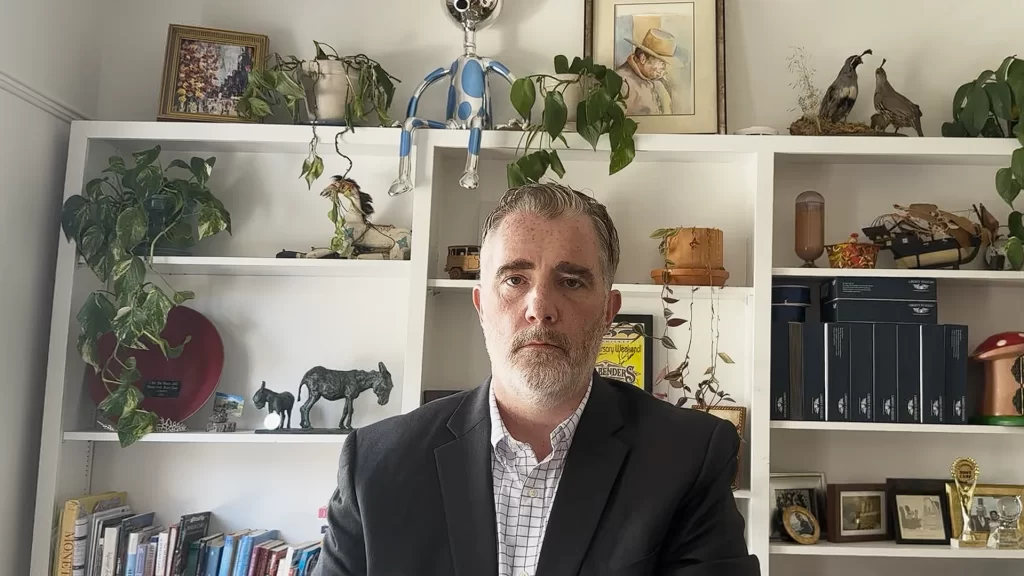Buying a home is a significant life decision, especially when it’s your first time. It’s an exciting journey filled with possibilities but it can also be complex and overwhelming. Knowing what to look for, what to avoid, and what to expect makes all the difference.
In this guide for first-time home buyers, you’ll discover the questions to consider before buying and the things to look at when choosing a house. You’ll also learn the common mistakes to steer clear of and what the buying process involves. With the proper preparation and knowledge, you can confidently make this big step.
What Is the First Thing to Look at When Buying a House?
One fundamental thing to remember when buying a house is that not every home is the same, and you should have specific criteria. However, one similar aspect that applies to all home buyers is knowing your needs and prioritizing them. Understanding your needs ensures that your chosen property aligns with your lifestyle and long-term goals.
Here’s an in-depth explanation that covers it:
1. Location
Your future home’s location matters as much, if not more, than the actual property. It’s vital to consider how close the house is to work, schools, and essential amenities like grocery stores and parks.
Look into the neighborhood’s safety record and talk to locals to understand the area. Remember to research future growth prospects, as a thriving community can enhance your home’s value over time.
2. Structural Integrity and Condition
Choosing the best home shouldn’t be based on aesthetics but on structural integrity and condition. Consider the age of the home and what that might mean for wear and tear.
Your decision should weigh potential repairs, as they can impact your budget and the time before you can move in. Even if older, a well-maintained home may be better than a newer one with hidden defects.
3. Size and Layout
Your home’s size and layout should match your family’s needs and lifestyle. Think about how many bedrooms and bathrooms you’ll need now and in the foreseeable future. Consider the flow of the rooms and how they connect — is it conducive to your daily activities?
If you enjoy entertaining guests, a spacious living area might be what you need. A dedicated office space might be a priority for those working from home. A house that’s too big can be just as inconvenient as one that’s too small, so choose one that fits just right for your family.
4. Resale Potential
If you’re also buying your home as an investment, then considering its resale potential is crucial. Its current price doesn’t just determine a home’s future value but also potential appreciation.
Researching neighborhood trends, planned developments, and future infrastructure can shed light on the property’s potential to increase in value. Look for areas where property values are expected to rise, as these can significantly affect your return if you ever decide to sell.
What Are the Questions to Consider Before You Buy?
Before we get to the process, you must assess a few critical areas to make sure you’re ready to buy a home:
1. What are your family size and lifestyle needs?
Assessing the number of bedrooms, yard size, or proximity to schools helps ensure the home fits your daily life. Choosing a place where everyone will feel comfortable and happy is non-negotiable.
2. What are your plans and long-term goals?
You must consider how your home fits into plans like career changes, family expansion, or even retirement to make your home a wise long-term investment.
3. What is your budget?
Knowing your financial limits helps narrow down options and prevents the stress of over-committing financially. Additionally, understanding loan options and what you can afford for a down payment is critical to a financially secure purchase.
4. What is your credit score, and have you considered pre-approval?
Your credit score can influence mortgage rates, and pre-approval can speed up buying. Knowing these in advance helps in setting a realistic budget.
5. What are the current market conditions in your desired area?
Recognizing if it’s a buyer’s or seller’s market or if prices are trending up or down informs your offer strategy. This knowledge could save you money and help you buy at the right time.
What Not To Do When You First Buy A Home?
As a first-time home buyer, you are not immune to making mistakes. Fortunately, knowing what not to do will give you an upper hand. Here are the common mistakes to avoid when buying your first time home:
1. Avoid impulsive decisions.
One of first-time homebuyers’ most common mistakes is succumbing to impulsive decisions. The excitement of owning a home, the pressure from sellers and loved ones, and the fear of missing out on the perfect property can lead to rushed decisions.
However, impulsive choices make you overlook significant details, skip due diligence, or exceed your budget. To avoid this, always stick to your outlined criteria, maintain a level head, and never rush into a decision, no matter how tempting the property appears.
2. Don’t overlook hidden costs.
Inexperienced home buyers often focus solely on the property’s price, but overlooking hidden costs can lead to financial strain down the line. Property taxes, insurance, and maintenance are all ongoing expenses that add to the overall cost of homeownership. You must pay attention to these hidden costs, or you might be forced to cut back on other essential budget areas.
It’s vital to research and identify these expenses beforehand. Speak with a real estate professional or a homeowner to understand the complete picture of what owning a particular home will truly cost.
3. Avoid overspending.
Unfamiliarity with home buying often leads first-time homebuyers to overspend. They may be tempted by a house slightly out of their budget or fail to understand mortgage terms, resulting in unanticipated costs.
Overspending can jeopardize financial stability and lead to unnecessary stress. You must establish a realistic budget from the start and stick to it to avoid this pitfall. Research mortgage terms thoroughly and seek advice from a financial advisor or mortgage broker.
4. Don’t skip professional guidance.
Real estate can be a complex field, especially for first-time homebuyers. Navigating the process without professional guidance can lead to misunderstandings, legal issues, or financial losses. Working with experienced real estate agents and lawyers ensures that all the necessary steps are taken, from finding the right property to closing the deal.
These professionals have the expertise to negotiate favorable terms, provide insights into local markets, and guide you through legal processes. Investing in professional guidance can save you time, money, and stress, making your home-buying experience much smoother and more enjoyable.
What to Expect in the Buying Process?
Now that you’re already familiar with what to look for in a house and what to avoid, let’s dive into what you can expect in the buying process:
1. Applying for Pre-approval and Budgeting
Pre-approval and budgeting are imperative first steps. They help you know what you can afford and show sellers you’re ready to buy. It’s like making a plan before you go shopping, so you know what you can get and stay in control of your money.
Here’s a simple breakdown of what happens:
- Understanding Your Money – You start by looking at what you earn, spend, and save. Doing so helps you see how much you can afford for a new home.
- Getting Pre-Approved – Next, you talk to a bank or lender. They check things like your job and credit score to see how much they can lend you. This shows sellers you’re serious about buying.
- Making a Budget – You know how much you can spend on a home. Think about extra costs, like a down payment and closing fees.
- Picking a Loan – Look at different loans with the lender. Find one that fits your budget and plans.
2. Choosing the Right Property
Following the abovementioned factors, choosing the “right” investment property might seem daunting with so many options. While the ideal home is subjective and varies for individuals, sticking to your pre-determined criteria will guide you closer to your dream home.
Working with a real estate agent who understands your needs can make the process less overwhelming. Patience and persistence are key, and carefully evaluating each property will lead you to a home that fits your lifestyle and budget.
3. Making an Offer
Once you find a home that feels the right fit, it’s time to make an offer and negotiate with the seller. Here are some simple tips to guide you:
- Research comparable sales. Look at recent sales of similar homes in the area to understand the market value. This helps you make a reasonable offer.
- Consult your real estate agent. Work closely with your agent to craft a competitive yet reasonable offer. They can negotiate with the seller on your behalf.
- Include contingencies. Contingencies protect you as a buyer. Common ones include a home inspection and mortgage approval. They give you an out if something unexpected comes up.
- Earnest money deposit. Consider including an earnest deposit to show you’re serious about the purchase. This deposit will go towards your down payment or closing costs.
- Be ready for negotiations. The seller may come back with a counteroffer. Be prepared to negotiate, but also know your limits and what you’re willing to compromise on.
Making an offer can be both exciting and nerve-wracking. Trust your research and the guidance of your agent. Balancing a fair offer and competitive terms increases your chances of securing the home you love at a price that works for you.
4. Conducting a Home Inspection
Before you finalize the deal, conducting a home inspection is mandatory. Inspections help uncover any hidden issues in the property, giving you peace of mind and a chance to negotiate repairs or price adjustments.
5. Finalizing the Mortgage and Closing the Deal
After submitting your mortgage application and going through appraisal and underwriting, you’ll receive a Loan Estimate outlining the loan terms. Once satisfied, you can lock in the interest rate and clear any remaining conditions. After you pay the closing costs and sign the required final paperwork, you are now officially a homeowner.
The Bottom Line
Buying your first home is a thrilling journey filled with obligatory considerations. Each step requires careful planning and awareness, from pre-approval and budgeting to choosing the right property and finalizing the mortgage. Working with real estate agents and professionals is critical to making informed decisions.
Keep in mind that your dream home may not be perfect, but it can become a perfect fit for your family with thoughtful consideration. Approach the process with enthusiasm and confidence, knowing you’ve taken the necessary steps to find a place you can call your own.
Begin your homeownership journey with Cedar Home Loans.
Owning a home should not be a difficult dream to achieve. With the affordable mortgage rates of Cedar Home Loans, you can begin your homeownership journey quickly.
Explore our Frisco home loans to find the perfect fit for your needs. Our team will guide you through the process, ensuring you secure the best mortgage solution for your first home. Take the first step towards making your homeownership dream a reality by contacting us today!






